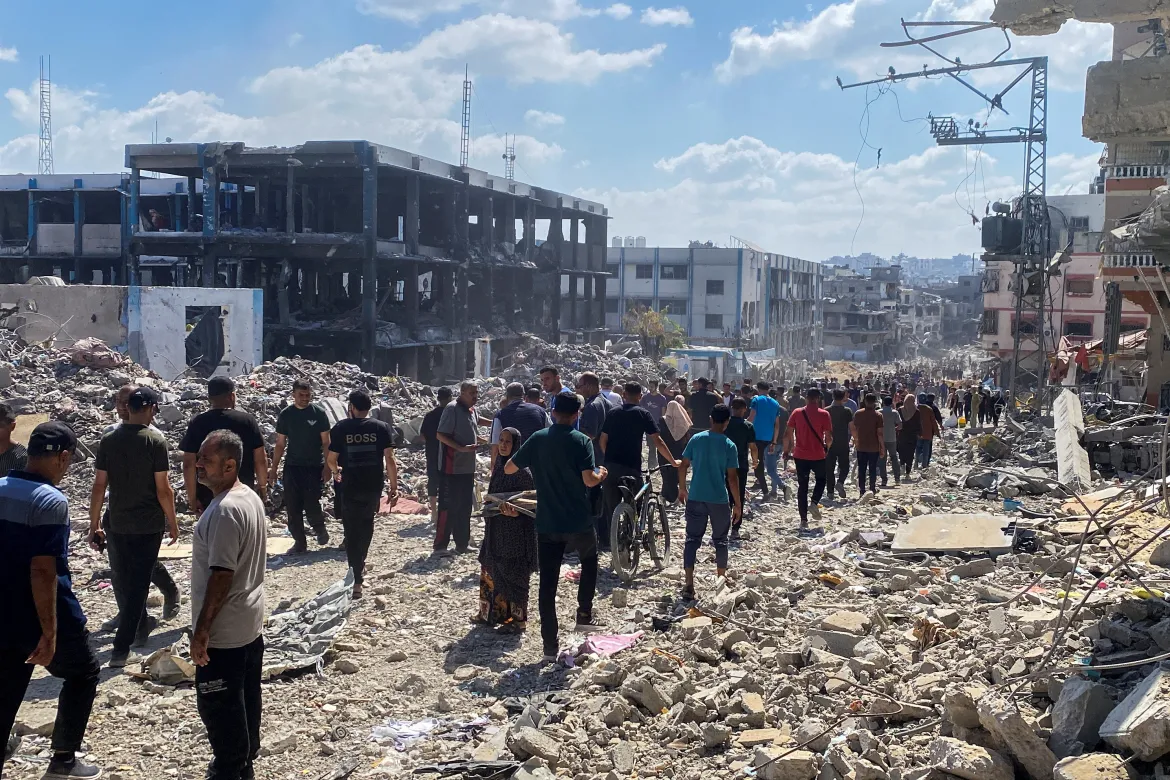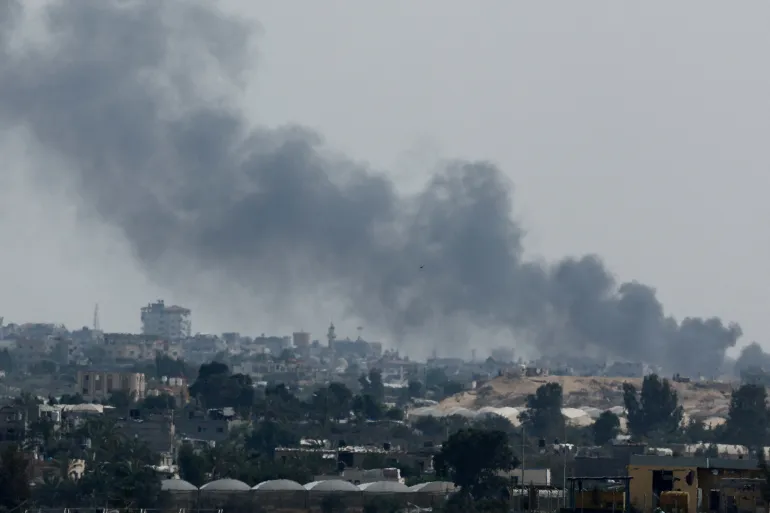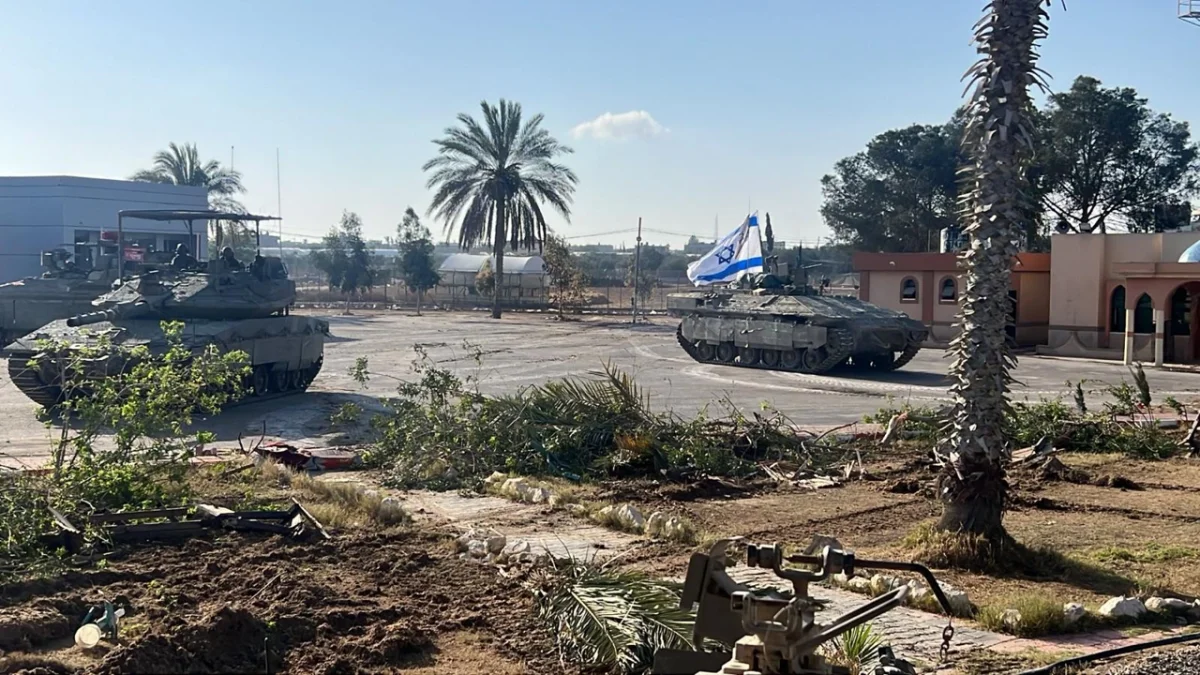Israeli forces continued their assault upon Palestinian territories on Friday across the Gaza strip with eyewitnesses reporting air raids around the southern city of Rafah.
The city has been the focus of the viral social media campaign with the tag ‘all eyes on Rafah’ over the past few days, but that does not seem to deter the invading Israeli forces.
Over the course of the eight month duration of the war, Israel has launched multiple offensives with the current incursion into Rafah starting in early May. The incursion started and continues on despite international objections over the safety of civilians sheltered in the city near the borders of Egypt with Gaza.

The Assault
A strike on a displacement camp sheltering civilians sparked a fire killing dozens brought down a fresh wave of international objection and condemnation over the weekend.
Witnesses reported that Friday’s attack hit across the city area as well as Nuseirat and central Gaza. An AFP correspondent also reported that there was an intense bombardment carried out in the north.
Sources reporting from a hospital in Deir al-Balah and the Nuseirat refugee camp reported that a total of 11 people were killed overnight.
The assault was justified by the Israeli military which claimed it will ‘continue operational activities’ in the city and surrounding areas. They claimed that they found rocket launchers, weapons and discovered tunnel shafts within the city area.
An air strike, they further claim, “targeted and eliminated” a combatant in the surrounding area.
While the combat zone continues to spread, streams of civilians can be seen fleeing the area
Why is the Rafah assault continuing?
Israel has repeatedly vowed to destroy Hamas after the militant group of Palestinian origin attacked the southern region of Israel on October 7. The ongoing incursion into Palestinian territories is, according to them, to retrieve hostages held by Hamas. The obvious secondary objective is to also eliminate them at the same time.
Israel claimed that Hamas’ forces had taken over the 14 kilometer long Philadelphi corridor running along the Gaza-Egypt border. This corridor, according to them, is being used to smuggle weapons.
Egypt, on the other side of the border of the conflict, a longstanding mediator in the conflict has yet to comment on the incursion in official capacity.
With the most recent diplomatic efforts failing to reach a consensus between the two it seems likely that the combat within Rafah will stop anytime soon. Hamas has informed its mediators that it would only agree to a truce arrangement and hostage swap if Israel were to halt its “aggression” completely.
This is something which the Israeli side has refused to agree with, reiterating their enmity with the militant group. They further claimed to have killed about 300 Palestinian combatants in Rafah since engaging them in combat in the city.

Difficulties with aid
Since the start of the current conflict and before the start of the Rafah offensive, the United Nations estimated that about 1.4 million refugees were seeking shelter in Rafah.
However, since then one million have fled the area, claims the UN agency working with Palestinian refugees, UNRWA. It has further claimed that due to difficulties in acquiring aid and necessities for the population may cause a famine.
The already meager delivery of aid to Gaza has further slowed since the Israeli capture of Rafah and has, in effect, closed the main exit for the territory.
Facing international backlash, Israel maintained its stance that aid has in fact increased. In an interview on the French channel LCI, Israeli Prime Minister Benjamin Netanyahu has called all claims of Israel deliberately starving civilians “anti-Semitic slander”.



